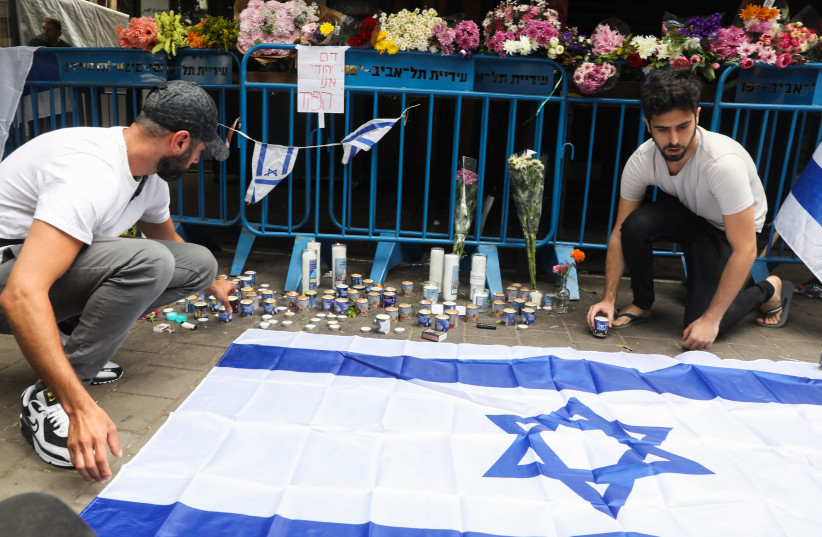Thursday night saw the fourth attack in a recent wave of violence that has been sweeping Israel since late March when terrorist Ra’ad Hazem opened fire outside of a bar on Dizengoff Street in Tel Aviv. After a 9-hour manhunt, police forces and IDF fighters located Hazem the next morning behind a mosque in Jaffa. He was killed in an exchange of fire.
Hazem reportedly received a ride from his hometown of Jenin to a breach in the security border, where he crossed and then boarded a bus to Tel Aviv undetected.
The attack left three dead and over 10 injured. Childhood friends Eitam Megini and Tomer Morad, both 27, were killed that evening. Olympic athlete and father of three, Barak Lufan succumbed to his injuries the following day. All three were laid to rest on Sunday.
It is easy at times like these to become stuck in a state of fear. How can we best protect ourselves? Are we safe to leave our homes? Indeed, a quick drive through the streets of Tel Aviv on Friday morning would have had one believe that is the current consensus. Normally, the pre-Shabbat hours are some of the busiest for cafés and restaurants in the city.
Last week, the streets appeared empty save for the occasional dog walker and those hurrying to reach what were likely prescheduled appointments. Any fear-based withdrawal appears to have been short-lived, however.

If there is one thing the Israeli people are known for, it is resilience. By Friday night, not only had many of Dizengoff’s bars and restaurants reopened, some were quite full. Particularly popular was Simta bar, the location of a 2016 Islamic-state-inspired shooting that left three people dead. Simta is owned by the same people as Ilka bar, the site of Thursday’s attack, and customers’ choice to frequent the bar at such a sensitive time did not go unnoticed.
Simta manager Liav Karavany expressed optimism that business will continue to return to normal. Tal and Shir, a young couple from Ramat Gan enjoying an evening out at Simta on Sunday agreed. “We have to get back to routine,” Shir explained. “We can’t let this stop us from enjoying life.”
This sentiment is evident throughout Dizengoff, which at first glance appears to be functioning as normal. Families and friends could be seen shopping and dining without obvious concern for their safety, though that’s not to say anyone has forgotten last week’s tragedy. Israeli flags hang in the windows of nearly every shop and restaurant on the street – noticeably more than before the attack. Just a block away from Simta, hundreds of mourners have continued to gather outside Ilka bar over the past few days to pay their respects to those killed while soldiers stand guard from across the street. A shrine outside includes flags, flowers and hundreds of candles all placed on the ground in memoriam.
There were 14 Israelis killed over the last two weeks, and although security measures have been increased, no one can say for sure when or how this wave will end. What can be said is that this terror has not broken the Israeli spirit. Should one need a reminder of what this spirit looks like, I suggest they take a stroll down Dizengoff Street.
